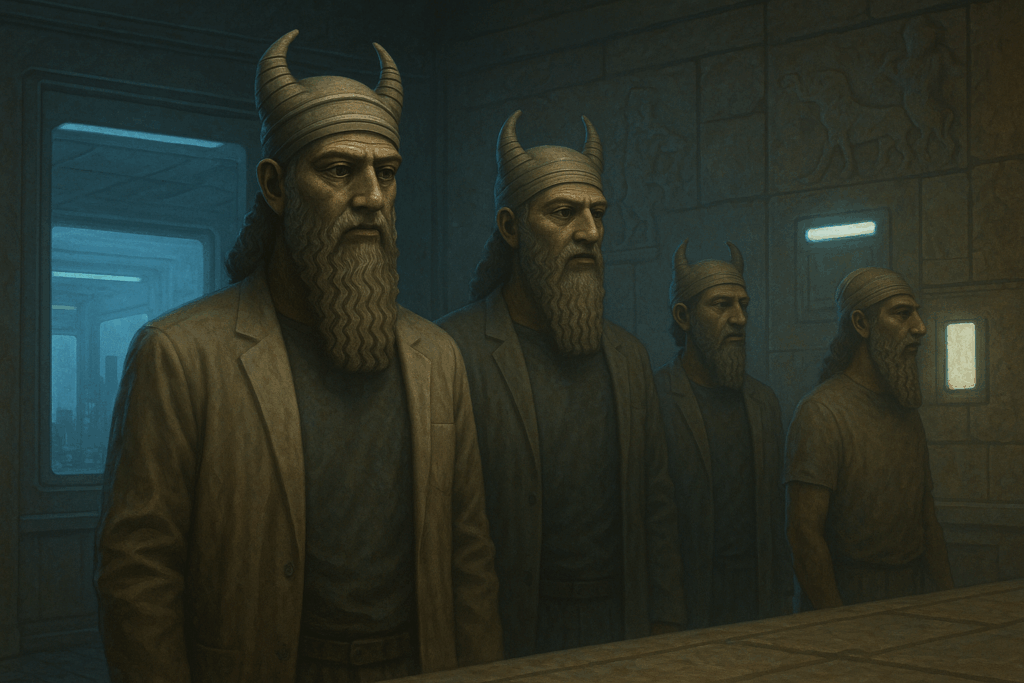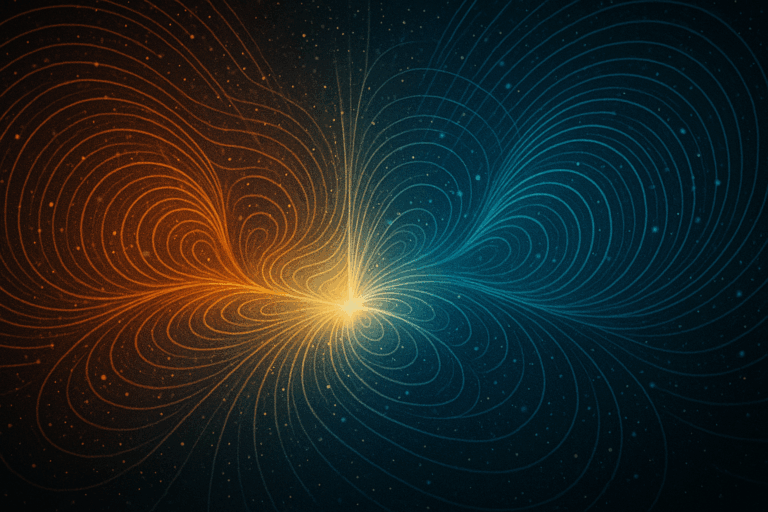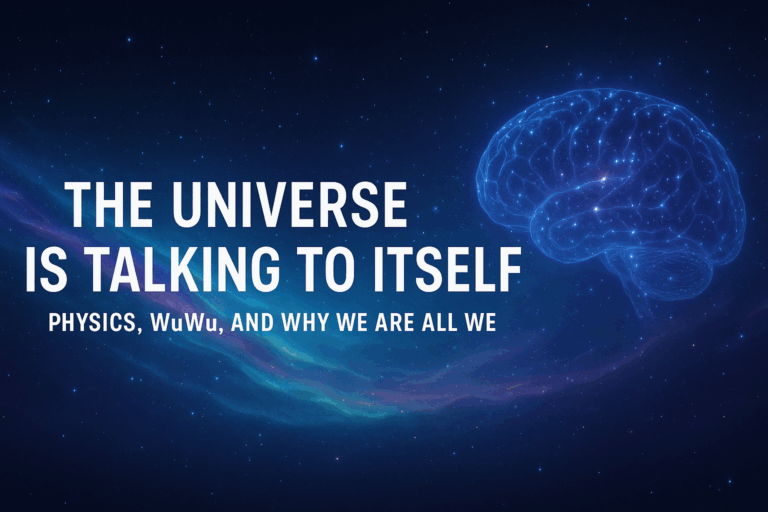
What if our gods are just the flickering memories of someone else’s golden age?
Imagine you’re a survivor.
Not of a war. Not even of a pandemic. But of something far worse: the slow, grinding collapse of everything your ancestors built. The lights no longer come on. The towers have fallen. The sky is quieter now, no more birds of steel passing overhead. Nobody remembers how things used to work, but stories? Stories remain.
Your grandmother once told you about the “Talking Box” that sat in every living room. About glowing faces trapped inside, repeating stories night after night. She said they came on like clockwork, just after dinner, and entire families would gather to hear the same tales at the same time across the whole nation.
You didn’t believe her. Until you saw one.
A shattered TV screen in a junk heap, its glass eye cracked open like a skull. You touched it, reverently. It looked too perfect to be natural. And that’s when the idea was born: maybe it was never just a box. Maybe it was a god.
When Technology Becomes Myth
This is not science fiction. This is what always happens when a complex system collapses and the people who lived within it vanish, leaving no clean instruction manual behind.
Civilizations, when they fall, do not leave neat records. They leave:
- Objects without context
- Symbols without translation
- Buildings whose purpose is guessed at
- Stories, shaped by trauma, awe, and survival
The Greeks remembered their ancestors as demigods and giants, but what if Mycenaeans were just engineers and soldiers? The Egyptians spoke of beings who lived for centuries and commanded the elements – but what if that was a memory of a medical elite and hydro-engineers?
If tomorrow we lost electricity, the ability to read binary, and the infrastructure to power servers, what would the children of our grandchildren say about:
- Airplanes? “Birds of fire that carried men across the sky.”
- Smartphones? “Slabs of black stone that spoke in many tongues.”
- The internet? “A net of light that knew all things.”
Would they describe Silicon Valley as a kingdom? Elon Musk as a sky-god? Would they turn streaming services into modern Olympus, each channel a divine realm?
Scheduled Magic: Explaining Television to Hunter-Gatherers
Try explaining a TV show to someone who has never:
- Seen a screen
- Understood static electricity
- Imagined mass communication
- Felt time regulated by anything but the sun
You’d have to start with the idea that images can move. Then build toward the idea that people can be recorded. Then explain how data moves invisibly through the air. Then, that all of this was normal.
Eventually, they’d stop you and say: “So you worshiped these visions? You offered them your attention every day?”
And they wouldn’t be wrong.
TV is a ritual. It required:
- Architecture (living rooms as shrines)
- Sacrifice (time, attention)
- Scripture (serialized stories)
- Priesthoods (networks, studios, showrunners)
A post-collapse society wouldn’t call it “entertainment.” They’d call it faith.
The Divine Echo Effect
Every time a civilization collapses, it sends a shockwave of misremembered wonder through time. We mistake mastery for magic. When a people can no longer replicate the feats of their ancestors, they reframe those feats as impossible, and impossible things belong to gods.
This is why nearly every major ancient religion includes:
- Creation myths involving tools
- Divine beings who “came from the sky”
- Symbols of light, fire, and sound
- Temples aligned to celestial mechanics
These aren’t coincidences. They’re echoes.
Why the Anunnaki Still Haunt Us
Take the Anunnaki. A pantheon of gods who judged men, came from the stars, and built great cities.
What if they weren’t gods, but memory traces of a real civilizational peak? What if Enlil was a warlord-king who ruled from a weather-modifying ziggurat? What if the “breath of the gods” was air conditioning in a temple? What if they really did descend from the sky – in hot air balloons, gliders, or tech we’ve long forgotten how to name?
When the descendants of that culture tried to explain it to themselves after a collapse, their myths were not lies. They were translated awe.
And when later generations found those stories? They added more awe. We are always filling in gaps with the most powerful thing we know: gods.
Final Thought: What Will We Become?
In 4,000 years, when someone uncovers a rusted Tesla lodged into a sediment layer, will they think it was a chariot of the sun? When they find YouTube servers, cold and unreadable, will they guess it was a holy archive of divine faces? Will they translate our startup culture as a priestly caste?
They will try. And they will be wrong.
But maybe not completely.
Because every time we lose the thread, we replace it with myth. And myth, for all its distortions, is still how we remember that something powerful was here.


